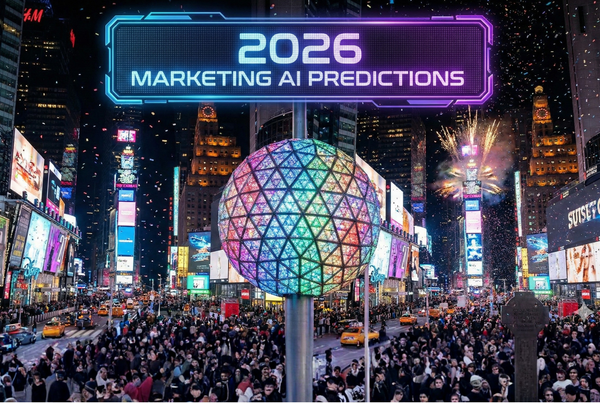If AI Gets Facts Wrong, How Can I Trust It With My Marketing?
AI tools make a lot of mistakes. Should marketers pull back on AI because it makes mistakes?

AI is wrong, a lot. Anyone who’s spent time with tools like ChatGPT knows it can be confidently incorrect. I ran into this firsthand while building a custom ChatGPT for my marketing and sales team. I had uploaded knowledge files and crafted detailed behavioral instructions, but the results were inconsistent and, at times, flat-out inaccurate.
When I asked ChatGPT why it wasn’t using the uploaded knowledge correctly, here’s its honest response:
Knowledge Files Are Not Always Reliably Used. GPTs often fail to properly pull from uploaded documents. The GPTs also do not index documents the way a true enterprise search tool would. It can miss context, forget documents exist, or summarize inaccurately.
Behavioral Instructions Are Not Guaranteed. Even when you give GPT a custom persona, it can “forget” its instructions — especially if the user prompt isn’t aligned with that behavior.
This isn’t just anecdotal. A 2025 study by Vectara found that generative AI tools hallucinate, or invent incorrect information between 3% and 27% of the time. That’s a wide range, depending on the task. Fortunately, hallucination rates tended to be lowest for marketing applications. But it was highest for legal and financial tasks where precision is non-negotiable. For more on this, check out Vectara’s AI Hallucination Report 2025 to see which tools perform best across different business use cases.
The New York Times recently echoed this concern in their piece, “AI Is Getting More Powerful, but Its Hallucinations Are Getting Worse”:
“The newest and most powerful technologies — so-called reasoning systems from companies like OpenAI, Google, and the Chinese start-up DeepSeek — are generating more errors, not fewer. As their math skills have improved, their handle on facts has gotten shakier. It’s not entirely clear why.”
So, should marketers give up on AI because it makes mistakes?
Mistakes are not a reason to reject or delay AI adoption. They’re a reason to understand it better and to implement the human oversight it requires.
All AI tools are evolving fast, and user feedback helps refine their accuracy over time. Today’s limitations won’t define tomorrow’s capabilities.
The truth is, AI doesn’t need to be perfect to be valuable. You just need to know how to work with it. Here are a few ways to think about it that I’ve seen others suggest:
- Think of it like a super-powered intern: Incredibly fast, surprisingly helpful, but not ready to fly solo.
- Like a pilot using autopilot: The system handles the routine, but the human is always in command.
- Like a doctor using diagnostic software: The tech can enhance insight, but never replaces clinical judgment.
Marketers who benefit most from AI are the ones who stay actively engaged with it. They design workflows that amplify its strengths and catch its missteps. They don’t outsource thinking, they augment it.
In my case, the solution was a different platform: CustomGPT.ai, which better matched my needs for document reliability and persistent instructions.
This is changing fast. A tool that disappointed you yesterday might delight you tomorrow. Since then, OpenAI has released memory improvements to ChatGPT, which may solve some of the original challenges I faced (read more).
This is a journey and if you’re a marketer trying to build smarter, faster, more creative systems, the promise of AI is too valuable to ignore. It’s not about perfection. It’s about progress.





